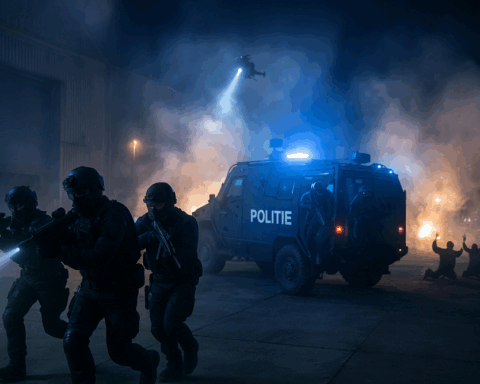The Public Health Act forms a legal and organizational cornerstone within Dutch healthcare and the broader enforcement of public order. In the context of contemporary societal threats, where infectious diseases and health risks are not merely medical issues but have direct implications for the safety of citizens, infrastructure, and economic…
Read moreThe Act on Promoting Integrity in the Awarding of Public Contracts, commonly referred to as the BIBOB Act, constitutes one of the most essential instruments within the Dutch legal framework for maintaining public order and safety. This law is not merely an abstract legal provision; it functions as a robust…
Read moreThe domain of child protection measures extends across a complex legal and societal landscape primarily aimed at safeguarding minors from abuse, neglect, and other forms of serious threats to their development. Within this framework, balancing the individual rights of the child with broader societal interests constitutes a fundamental challenge, as…
Read moreThe Temporary Domestic Exclusion Act represents one of the most far-reaching instruments within the Dutch legal system to safeguard public order, ensure safety, and protect vulnerable citizens. This legislation grants the mayor the authority to act swiftly in acute situations where there is a threat of domestic violence or serious…
Read moreThe instrument of issuing an order to parents or guardians of children under twelve represents one of the most significant preventive powers granted to the mayor in the context of maintaining public order and safety within municipal boundaries. The legislature has established a legal foundation through Article 172b of the…
Read moreThe Safety Regions Act forms the legal foundation for regional crisis management in the Netherlands and provides an unparalleled framework for the coordination of disaster response and crisis intervention. The Act is designed to create a strictly regulated structure within which various safety authorities, including police, fire services, medical emergency…
Read moreThe system for monitoring and protection forms the foundation of the national strategy for safeguarding public order and security in the Netherlands. In a society where threats manifest both physically and digitally, this system has become increasingly complex and sophisticated. The contemporary security environment is characterized by a combination of…
Read moreArticle 13b of the Opium Act, better known as the Damocles Law, provides a special instrument to intervene against criminal activities that seriously endanger public health, public order, and safety. This article allows authorities to take rigorous action against individuals or organizations involved in the production, trade, or consumption of…
Read moreThe Alcohol Licensing and Catering Act (Drank- en Horecawet, DHW) represents one of the most comprehensive legal instruments in the Netherlands for maintaining public order and safety. Its primary objective extends to regulating the sale and consumption of alcoholic beverages while simultaneously placing the operation of hospitality establishments under a…
Read moreThe closure of a residence under Article 174a of the Municipalities Act, commonly known as the Victoria Act, represents one of the most drastic measures a mayor can impose within the domain of public order and safety. This legislation extends beyond traditional enforcement tools, enabling local authorities to address an…
Read more
